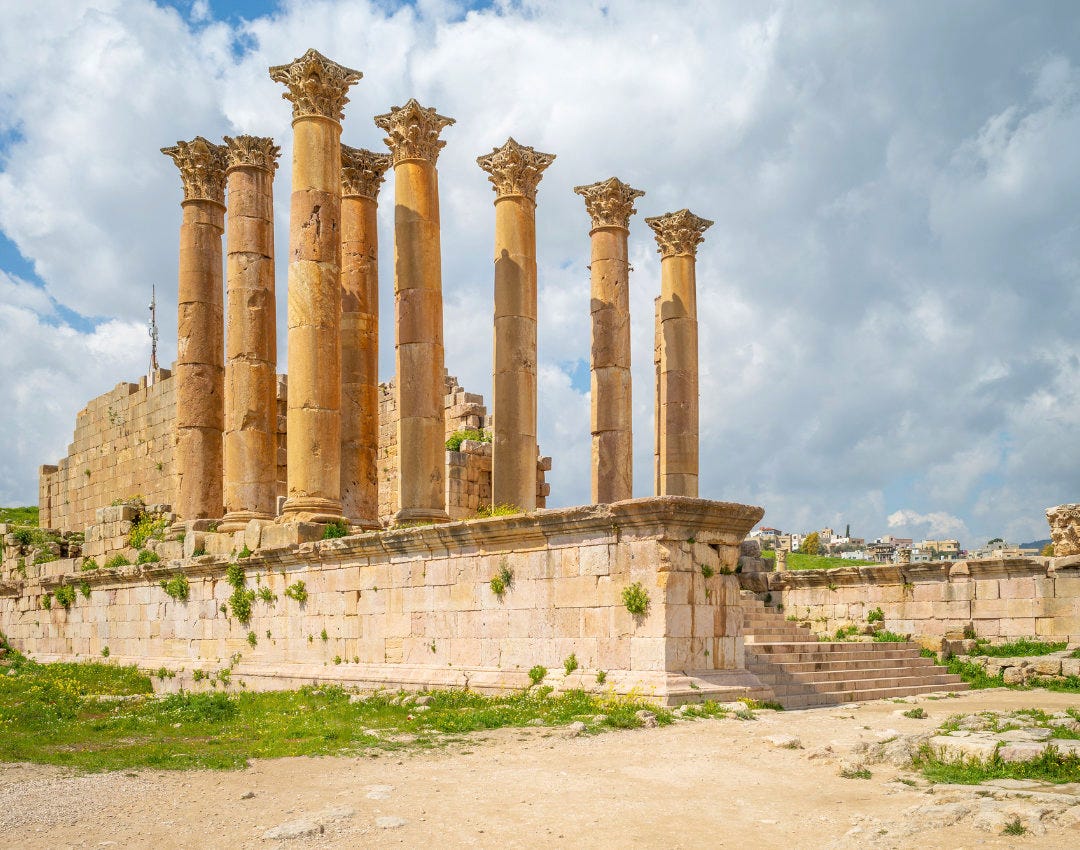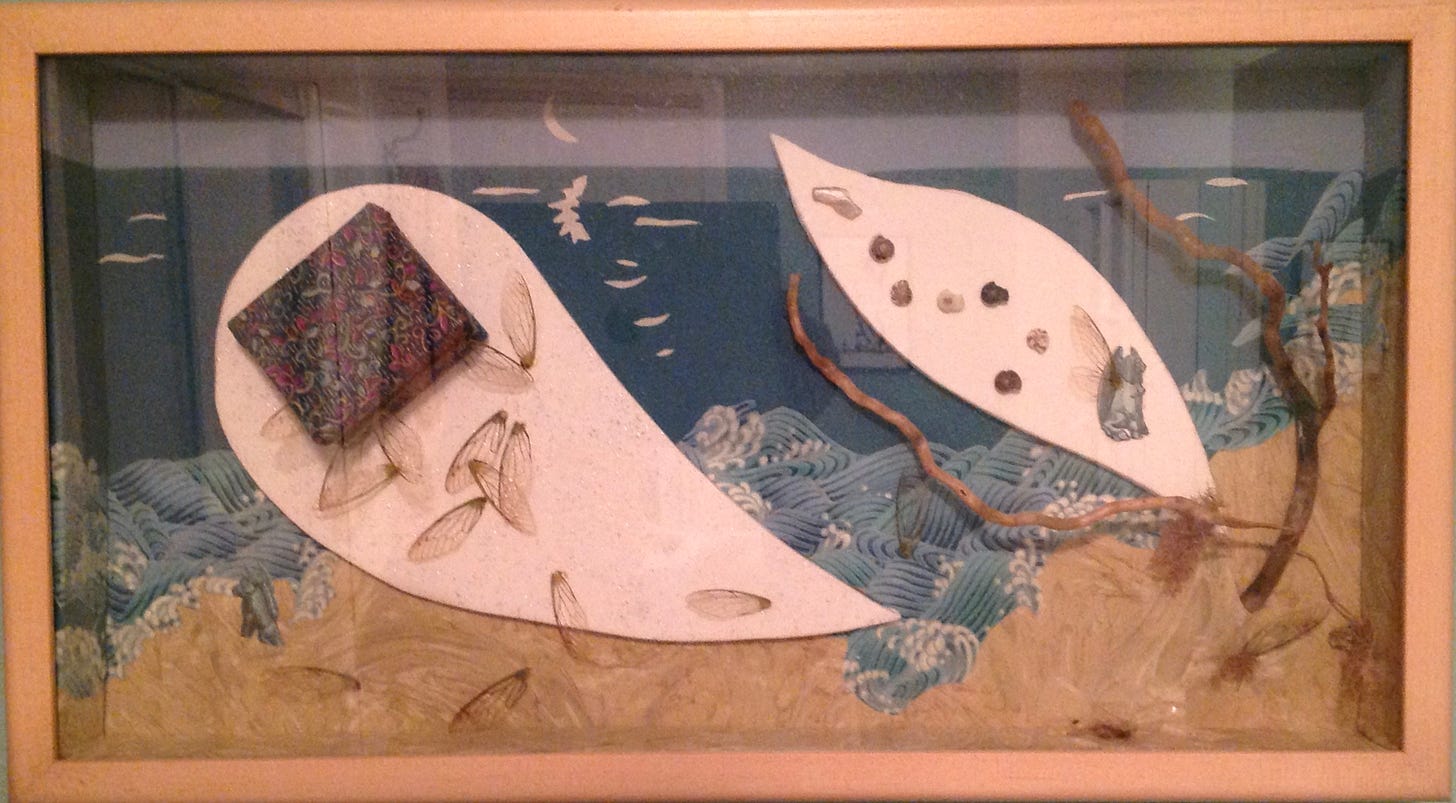One of my readers pointed out - and quite sensibly - that I should create a post about what I mean by being Pagan and pin it. The answer isn’t simple. But religion never is. Let’s start with that.
Paganism is a religion.
There are plenty of Christians who would object. I get it. However, religious scholars disagree. Religion, and I mean that in the very broadest sense, has been part of human existence for as long as there have been humans. We have built-in mechanisms for religion, and these propensities are part of human existence. For example, we have in our brains, what’s called the OAA [Orientation Association Area] This allows us to differentiate between what is ‘me’ and ‘not me.’ It tells us where we end and the world starts. It is a boundary. Rhythmic movement [dancing], rhythmic sound [music, drums] are two of the things that can overwhelm that boundary and make us feel one with what is around us. That might be other humans, or it might be the natural world, or it might be something greater.
There are other evolved mechanisms as well. An atheist might say that means we are only flesh, and you could make a logical argument for that. However, logic isn’t enough. Logic and reason can never be enough. The world is filled with an infinite array of facts but we are not infinite beings. That very limitation creates a need to find meaning in our existence. Facts alone cannot help us find meaning because a reasonable argument can be found for anything, including killing and poisoning millions of our own kind and making big messes.
Logic alone cannot create or build a civilization, let alone hold it together. [Feel free to argue in the comments.] For that we need something to aim at. For tribal peoples, something to aim at was their children surviving long enough to have children of their own. That meant raising children in a way that let them understand their environment, but also so that they could cooperate with others. The ability to make a mutual aim sacred made it easier to be loyal to the group.
Nor can logic make stories. [I also mean stories in the broad sense that includes art and music.] Stories require an aim. There has to be a goal, a vision. Even abstract art starts with a preference for color, or material. Stories so fundamental to our being [another of those evolved mechanisms] that not even the smartest and most reasoned of atheists can successfully argue another person into changing how they feel about a given story. Logic is mere dust against the wall of emotion.
We use stories to order our world and tell us where to aim and how to live so we can reach the goal in the best way. Religion is the embodied practice of re-enacting a corpus of stories in a group setting. For example, when Christians take communion, or perform the stations of the cross. This re-enactment builds group identity and affirms goals. It is a re-centering that pushes away short term urges, sacrificing them to long-term goals.
The word ‘pagan’ comes from the Latin ‘paganus’ which just meant ‘country dweller’ ‘Heathen’ retains the same connotation. As Christian religion became dominant in the Western world, the [uneducated] people of the countrysides retained the practices and stories that were handed to them by previous generations. These included what we think of now as mythology. As stories have always done, these myths and folktales changed to fit the local situations, but threads of the old tales always remained. No matter how the church fathers tried to stamp out stories - even Christian ones [see: Council of Nicea] - and declare a single TRUTH, the stories survived. Some of them were even written down by Christians who thought them worth preserving. We have accessible records of Nordic and Celtic myths because a Christian recorded a few of the oral traditions.
Modern Paganism is religious practice based on pre-Christian Western stories. There are several different branches because the cultures that slowly embraced - or were consumed by - Christianity, had varying stories they told about how they came to be, why they were there, and what to aim for.
Let’s pause here to say something critically important: Modern Pagans don’t have any desire to return to practices some of our ancestors thought were fine and good. Slavery was common all over the world until the start of the industrial revolution, and human sacrifice is right out. Nor is Modern Paganism the same as Satanism. Satan is a Christian story. I’ve written about Pagan concepts of evil here and here.
However, while religion is very much about story, it’s also about those parts of the brain that get overwhelmed. This is one of several reason why I’m Pagan. [I’ve written about that decision here, and here.] Christianity, at least the Christianity of my childhood was unable to achieve better effects in my adolescent brain than being outside in nature and hiking up to the top of the steep hill that was my town. It didn’t achieve better effects than dancing to a beat at a disco [It was Jr night, but still, yeah, a disco] or even a great horse-riding lesson. It shifted my emotional state less than did meditation [which I did without guidance from age 12.] The Christianity on which I was raised was a purely mental phenomenon, which also failed to satisfy my intellectual curiosity.
I stopped believing I was Christian at 14. But I never considered not having religion.
I’m not asking for paid subscribers but if you like this then perhaps you could…
Or have a look at the books I write under pen name Sabrina Rosen [On Amazon] or subscribe to my fiction blog.
Yes, there are groups of people who engage in religious practices that pull from mythologies, and that activate our bodies, minds, and hearts together. Those mythologies might be Celtic, Germanic, Greek, and even Egyptian. What specific stories we work with are less important than the basic structure of the ritual. Pagans don’t have written-down words to take literally. We drum, we chant, we stand around fires, we dance, we recite poetry, we drink wine or mead, we toast the ancestors, we send healing energy where it’s needed, and that’s not a complete list. The purpose is to build group cohesion, and connect us to the unseen world in its many forms where we may ask for help, offer our energy, and feel part of something meaningful.
Paganism in its modern form goes back to the post WWII era when England repealed their laws against witchcraft. That gave room for folk practices to re-emerge from the shadows and grow into groups and then organizations. Many fell apart. But our numbers continue to grow, and now there are many national-level groups. [We even have a seminary that offers both Certificates in Ministry and a terminal degree program.] [CHS also offers basic 4-week courses for the curious.]
The branches of Paganism include but are not limited to:
Celtic/Druidic
Heathen/Germanic/Nordic
Wicca/Witchcraft
Slavic
Greco-Roman/Platonic
The major organizations follow these paths, but smaller groups might mix and match depending on the members or founders. Some groups will be particular, some will not. Our understanding and experience of the unseen world changes as we grow and practice the techniques of connecting with it.
We are better for that connection, whether we do it in a group or do it alone. As with Buddhism, Pagans are expected to practice. Wicca, Druidry, and Platonic have specific paths to improving the self and one’s connection to the gods. The benefits of this connection include but are not limited to:
Feeling supported in times of trouble
Gaining insights on problems
A sense of meaning
An improved sense of control over one’s life
A connection with people who share values
While laws against witchcraft no longer exist in Western countries, Pagans are still viewed with suspicion in some places in the US. Jobs have been lost, and families broken up by authorities because of a lack of understanding. The work of educating law enforcement and child protection services is ongoing. For those who would say ‘That’s not a real religion!’ the US military recognizes nine different flavors of Paganism and permits symbols for Wiccan [star], Heathen [Thor’s hammer], and Druid [Awen] on military gravestones.
There is no denying that Paganism is a fringe religious practice. But it isn’t reasonable to think that a single religion or religious practice will fulfill the spiritual needs of every child of the Enlightenment. No matter how rational we see ourselves as being, there is no way to create - or find - meaning in a life filled with facts alone. Humans need mystery because that’s where possibility lies.
Paganism, and all its branches are a places of mystery, magic, and sacred transformation. If you listen, the gods might call you too.
If you’re curious about Paganism/Heathenism/Wicca/Druidry, please feel free to message me and I’ll be happy to answer questions.
Selina Rifkin, M.S. [Nutrition], LMT, has been Pagan since she was 14 [which was a long time ago] and been to Hades in a handbasket. More than once. This has given her some opinions. She has direct communication with her gods and they’ve always given her answers when she asks. [One does have to ask.] Like most of her generation [X] she’s okay with snark. Most days she tries for good writing. But the snark, and side comments creep in. Be warned.
Pagan Organizations






